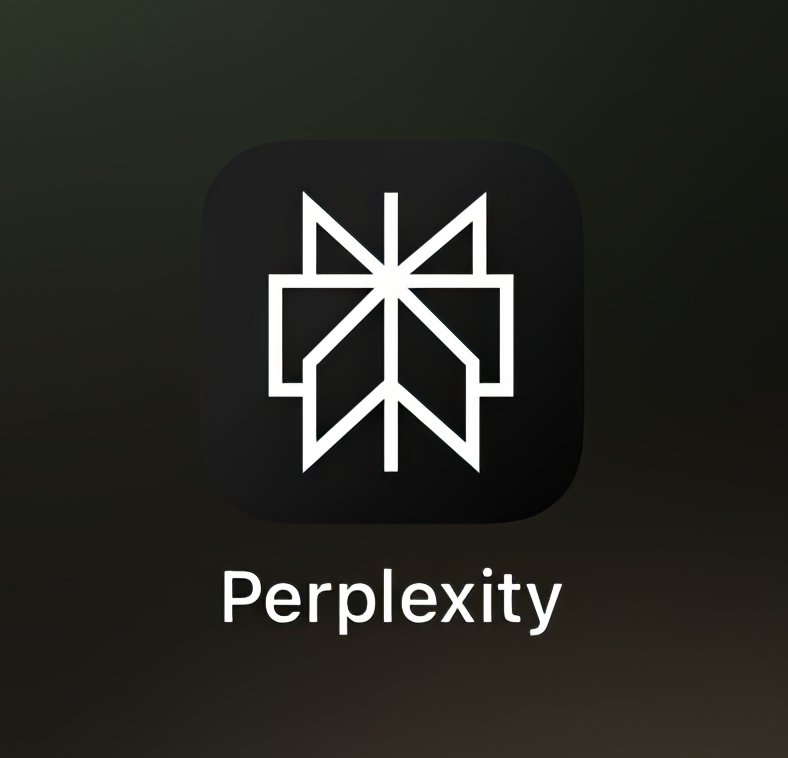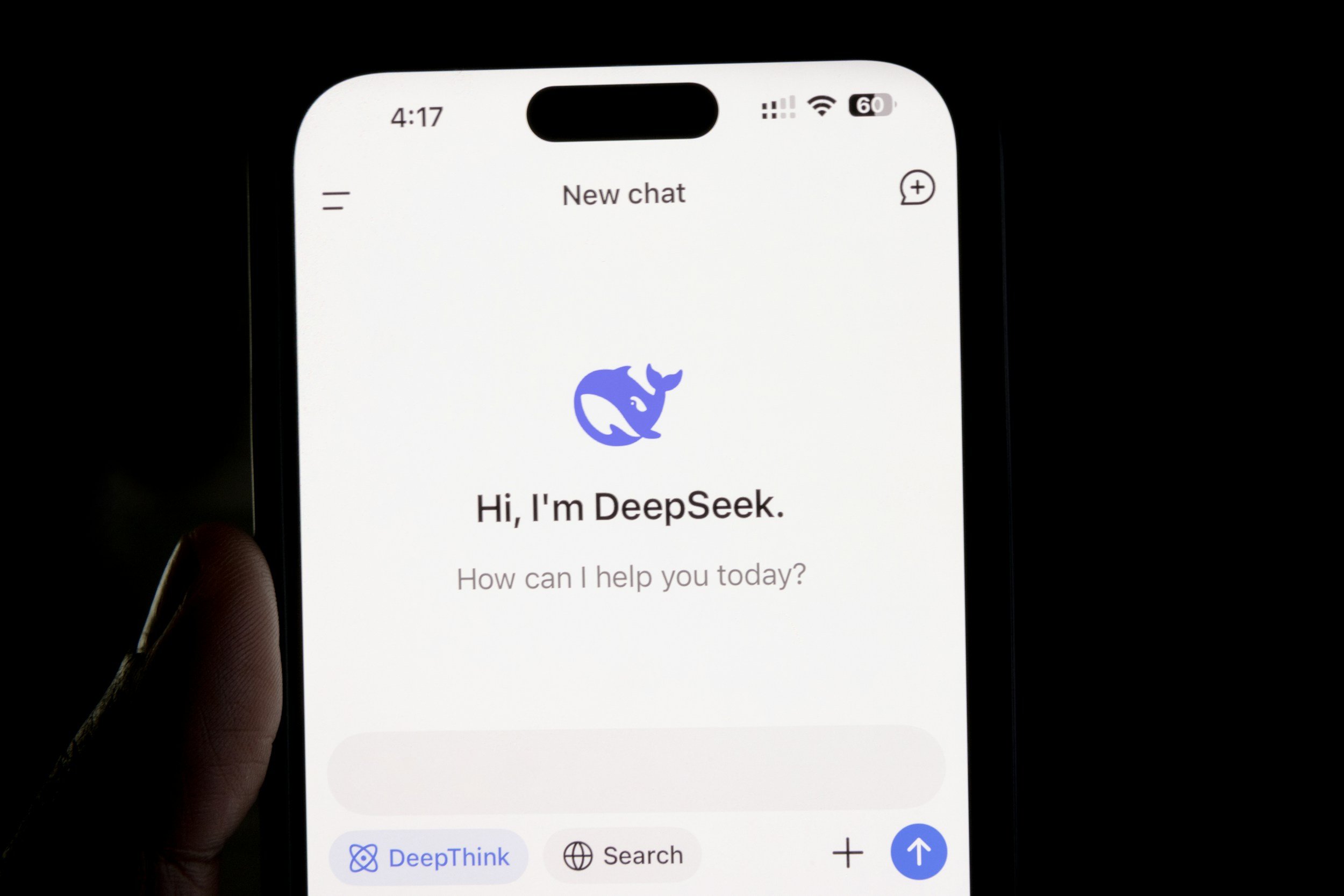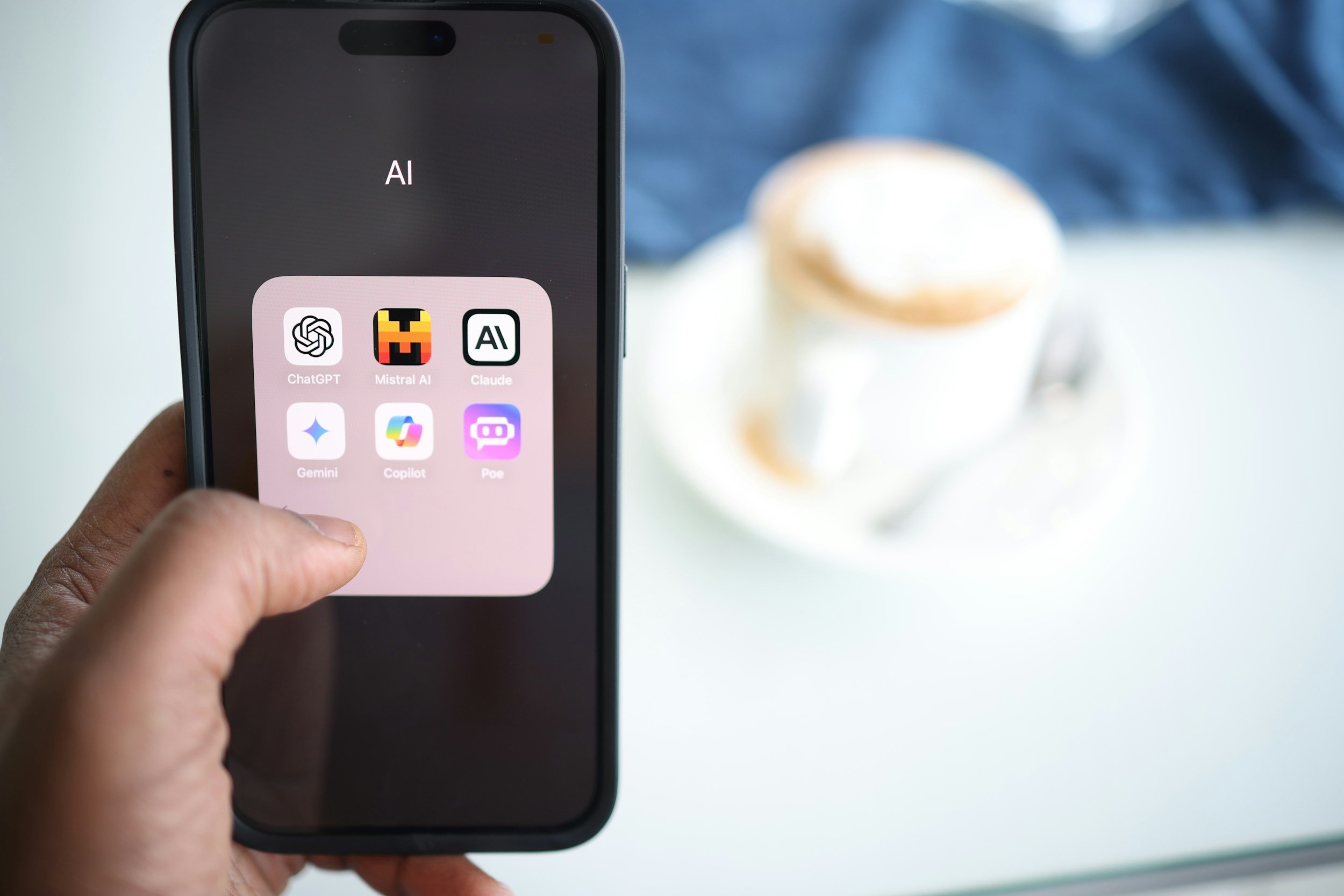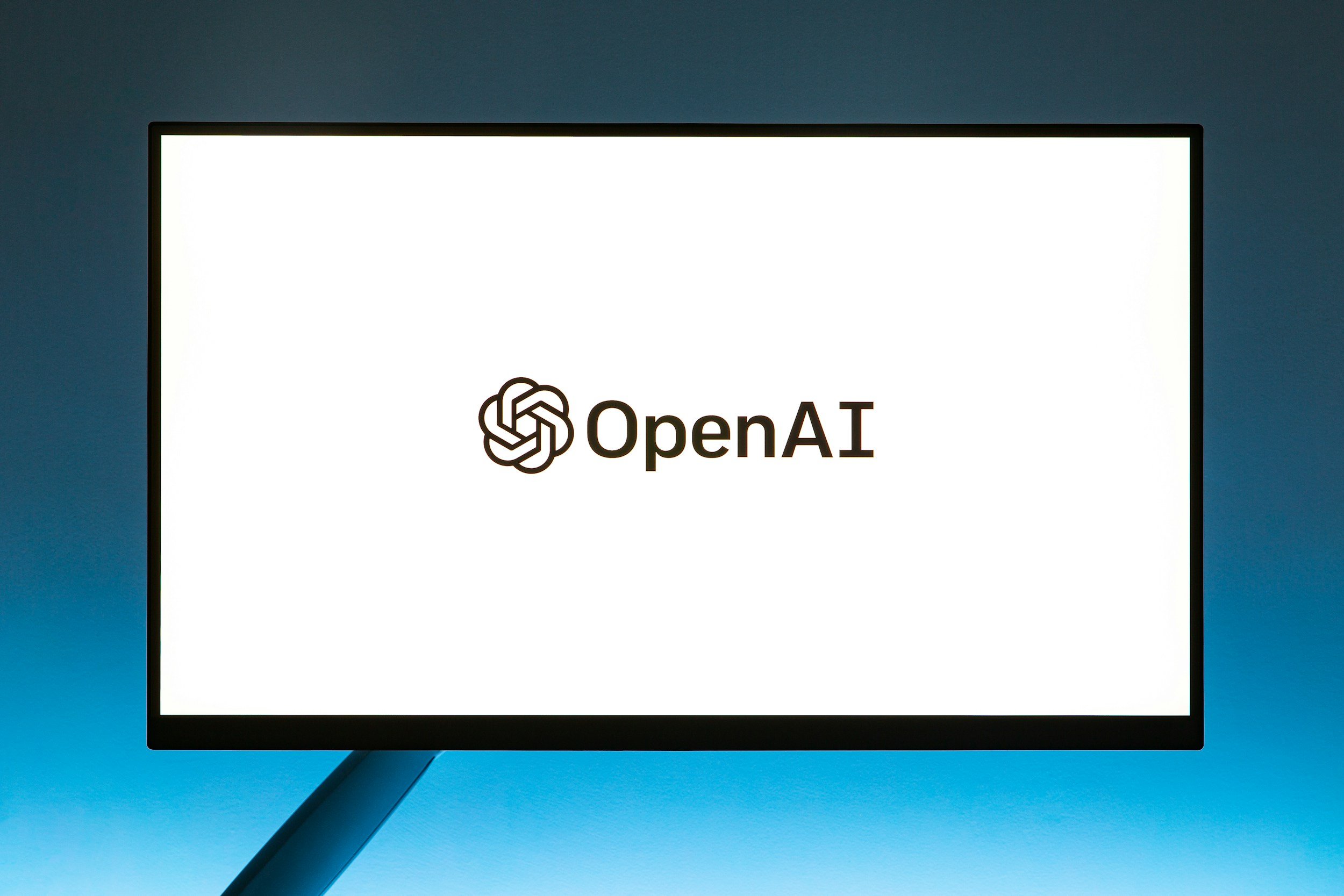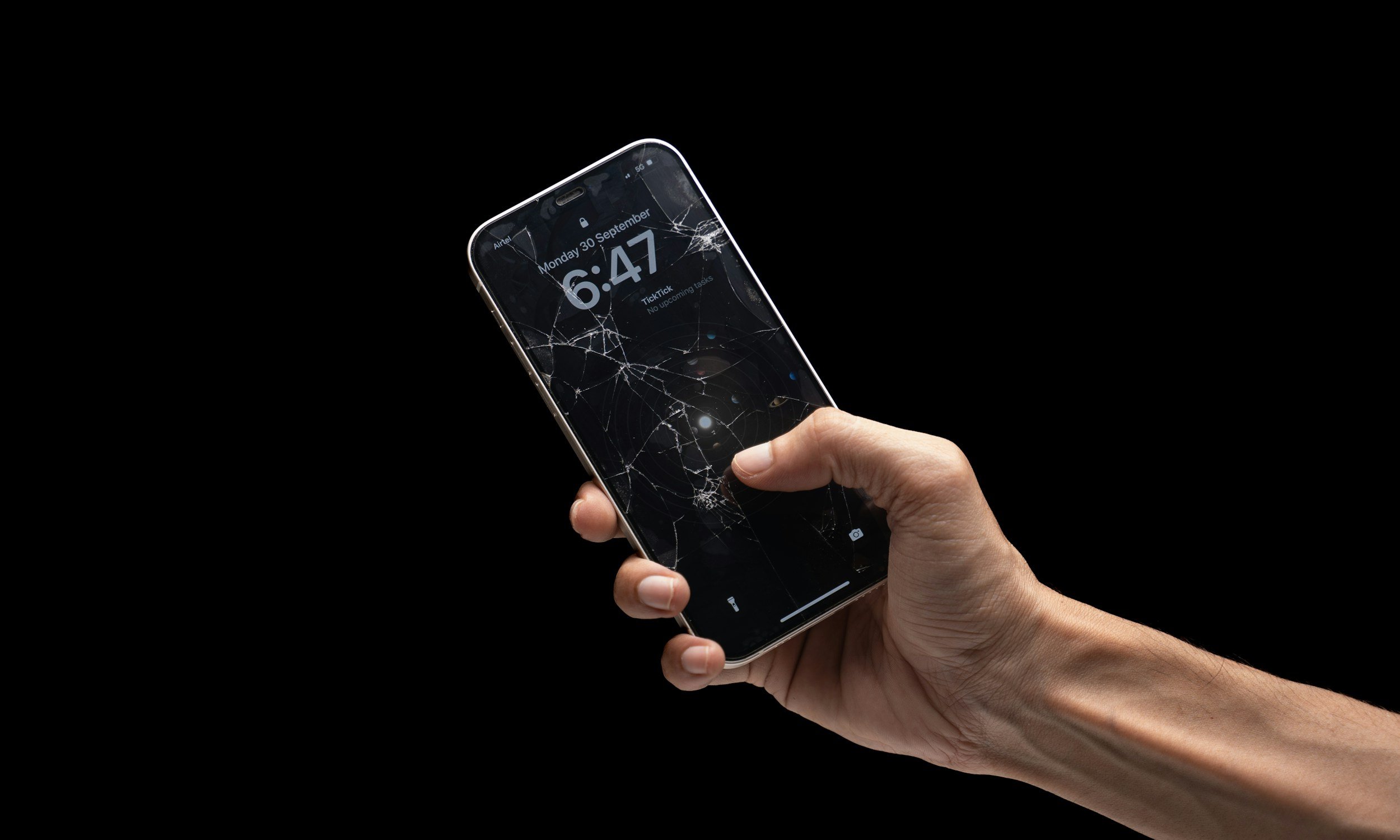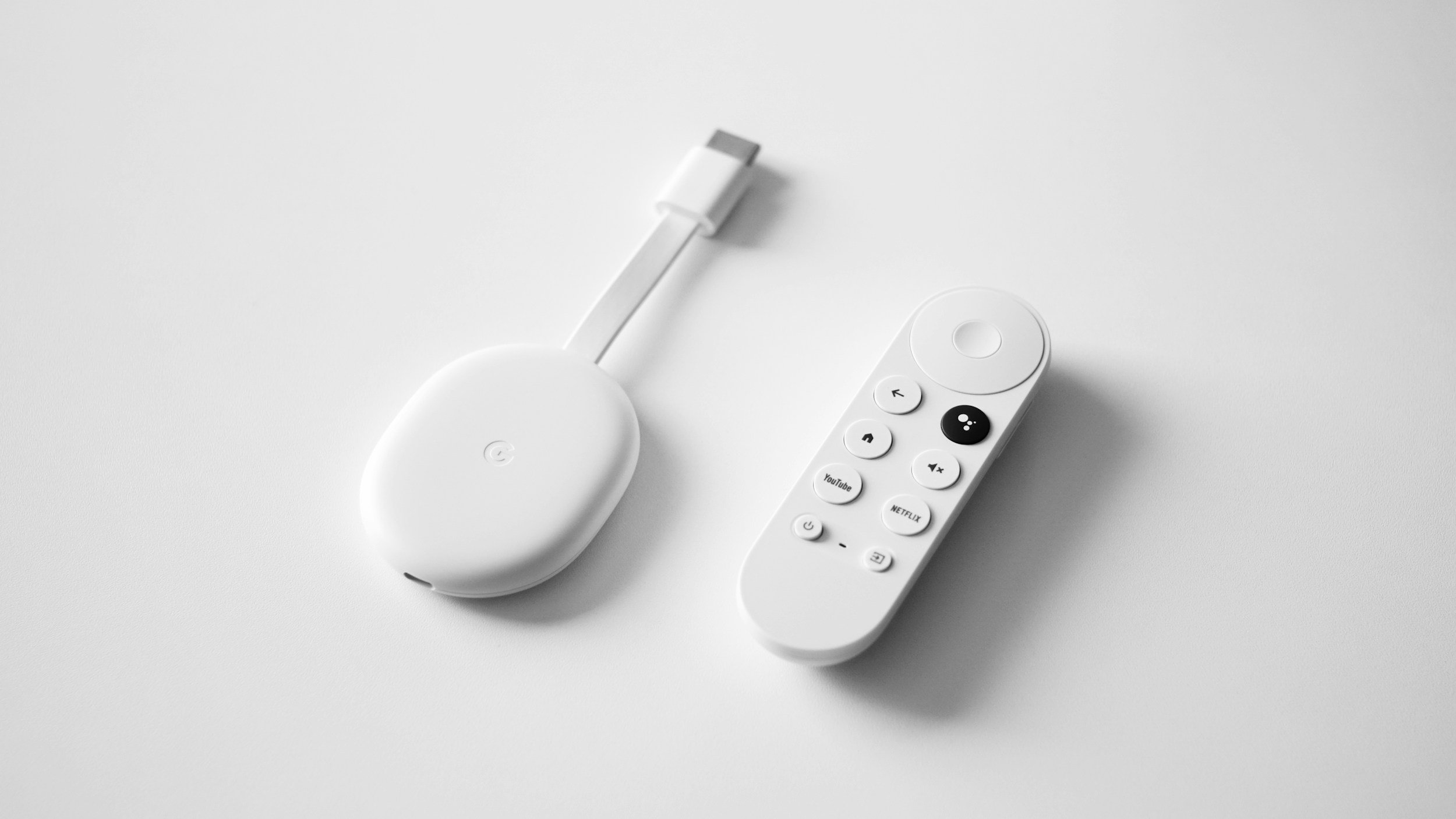What Are Examples of Artificial Intelligence?
When you purchase through links on my site, I may earn an affiliate commission. Here’s how it works.
Table of Contents Show
Do you still remember those old movies where robots were taking over the world? Well, we're not quite there yet, but Artificial Intelligence – AI for short – is definitely having a moment.
AI is basically the idea of getting machines to think and learn like us humans. And it's not just about building super-smart robots (although that's cool too).
AI is already woven into so much of our daily lives, from the way our phones predict what we're about to type, to the algorithms that decide what shows up in our social media feeds.
This isn't gonna be some deep dive into the technical side of things. Instead, we're going on a tour of the real world.
We're talking about the actual ways AI is being used right now, in all sorts of industries. From healthcare to finance, transportation to entertainment, we're gonna see how AI is changing the game. Here we go.
Examples of Artificial Intelligence in Everyday Life
1. Virtual Assistants
If you've ever barked a command at your phone, or had a casual chat with your smart speaker, you've already experienced AI in action. Virtual assistants like Siri, Google Assistant, and Alexa aren't just fancy voice recorders. They're packed with some serious AI tech.
Think about it: you can ask them just about anything, in your own words, and they usually get what you're saying. That's Natural Language Processing (NLP) at work. It's like teaching a computer to understand human conversation, slang, accents, and all.
And the more you use them, the better they get at understanding you specifically. That's Machine Learning doing its thing, constantly refining its models based on your interactions.
It's not perfect, of course. We've probably all had those moments where Siri completely misses the mark, or Alexa sets a timer for 50 minutes instead of 5. But it's pretty amazing how far it's come.
Remember when voice commands were limited to a few pre-programmed phrases? Now, you can have a full-on conversation with your AI assistant, asking it to play music, check the weather, control your smart home devices, and even tell you a joke (even though they’re mostly pretty bad).
And the crazy thing is, this is just the beginning. As AI continues to evolve, these virtual assistants are only going to get smarter, more helpful, more integrated into our lives, and maybe even a little more... human-like.
2. Recommendation Systems
Ever finished a Netflix binge and wondered how the algorithm seems to know your taste so well? Or added a random item to your Amazon cart, only to be bombarded with eerily similar suggestions? Welcome to the world of recommendation systems – where AI is basically your personal shopper, DJ, and movie critic all rolled into one.
These systems are the backbone of platforms like Netflix, Amazon, and Spotify. They're the reason you see "Recommended for You" sections, "Customers Also Bought" lists, and perfectly curated playlists. It's all about analyzing massive amounts of user data to figure out what you might like next.
Think of it like this: every time you watch a show, buy a product, or listen to a song, you're leaving a digital trail of breadcrumbs. The AI behind these recommendation systems is constantly following those breadcrumbs, building a detailed profile of your preferences. It looks at what genres you like, what actors you follow, even the time of day you're most likely to stream music.
Then, it uses that information to make predictions. It might suggest a new show based on your past viewing habits, or recommend a product that people with similar tastes have also purchased. It's kinda like having a friend who knows your taste better than you do (which is quite creepy to be honest).
Of course, it's not always perfect. Sometimes you get recommendations that are way off base, or you end up in a filter bubble where you only see things you already like.
But overall, these AI-powered systems have revolutionized the way we discover new content. They've made it easier than ever to find the next binge-worthy show, the perfect gift, or the song you didn't even know you needed.
And the technology behind it is only getting smarter. As AI is getting better day by day, these recommendations are gonna get even more personalized, more accurate, and hopefully, less likely to suggest that one weird movie you watched years ago and immediately regretted.
3. Social Media Algorithms
Let's be real, most of us spend way too much time scrolling through our social media feeds. But have you ever stopped to think about why you see the posts you do? It's not just random chance – it's the algorithm, that mysterious AI force that decides what content gets your attention.
Platforms like Facebook, Instagram, and TikTok are masters of this game. They use AI to analyze everything from your likes and comments to your watch time and even your location. It's like they're building a digital profile of you, figuring out your interests, your habits, and even your mood.
And what do they do with all this information? Well, they use it to curate a personalized feed just for you. The goal is simple: keep you engaged, keep you scrolling, and keep you coming back for more. That's why you'll see posts from your close friends, videos that match your sense of humor, and ads for products you might actually want to buy.
It's a bit like a magic trick – you're constantly being shown things you're likely to enjoy, so it feels like the app is reading your mind. But it's not magic, it's just really good AI.
Of course, there's a downside to all this personalization. It can create filter bubbles, where we're only exposed to viewpoints we already agree with. It can also lead to addictive behavior, as we get hooked on the endless stream of tailored content.
But love it or hate it, the algorithm is here to stay. It's the driving force behind social media, shaping our online experiences and influencing our real-world interactions.
So next time you're scrolling through your feed, remember, it's not just you making the choices – it's AI pulling the strings.
4. Smart Home Devices
Do you remember the TV show The Jetsons? Flying cars might still be a ways off, but the smart home of the future is already becoming a reality. We're talking thermostats that learn your schedule, lights that turn on when you walk into a room, and security cameras that can tell the difference between a package delivery and a potential intruder. All thanks to AI.
Now, I'm not talking about some crazy, self-aware house that's plotting to take over the world. We're talking about practical, everyday devices that use AI to make our lives a little easier.
Take smart thermostats like Nest, for example. They don't just let you adjust the temperature from your phone; they actually learn your habits and preferences. Over time, they'll start automatically adjusting the temperature based on your schedule, saving you energy and money without you even having to think about it.
Or think about smart lighting systems like Philips Hue. They can do way more than just turn on and off. They can change colors, create custom scenes, and even sync with your music or movies for a fully immersive experience. And with AI, they can learn your routines and automatically adjust the lighting throughout the day, creating the perfect ambiance for any occasion.
Even security cameras are getting smarter. With AI-powered facial recognition, they can tell the difference between family members, friends, and strangers. They can also detect unusual activity, like a package being left on your doorstep or someone lurking around your property, and send you alerts in real-time.
Now, I know some people are hesitant about bringing AI into their homes. There are legitimate concerns about privacy and data security.
But if you're willing to embrace the technology, smart home devices can offer a level of convenience and control that was once unimaginable.
5. Chatbots
You’ve probably been there too: You're on a website, trying to figure out how to return an item, and you're stuck navigating a maze of FAQs and unhelpful search results. Or maybe you're trying to get help with a technical issue, and you're on hold for what feels like an eternity. It's frustrating, it's time-consuming, and it can leave you feeling like you're talking to a brick wall.
Do you remember those little chat windows that pop up on websites or in messaging apps? Those are often AI-powered chatbots, that are ready to answer your questions and provide assistance 24/7.
Luckily, they're not just spitting out pre-programmed responses anymore; they're using natural language processing and machine learning to understand your queries and provide relevant answers.
Need to track an order? Reset your password? Get help troubleshooting a product? AI chatbots can handle all that and more, often without you even needing to talk to a human agent.
The benefits? 24/7 availability, quick answers to common questions, and a more streamlined customer service experience. No more waiting on hold, no more navigating endless phone menus.
But there are still many things that require a human touch, like complex problem-solving or dealing with emotionally charged situations. But by handling the routine tasks and providing quick answers, AI chatbots at least are freeing up human agents to focus on what they do best: building relationships and providing exceptional service.
Examples of Artificial Intelligence in Healthcare
1. Medical Diagnosis
We pretty much all know healthcare is a field where accuracy is everything. And while human doctors are incredible, even they can miss subtle details or make mistakes. That's where AI is stepping in, not to replace doctors, but to give them a powerful new tool in their arsenal.
One of the most exciting areas is medical diagnosis. AI is being trained on massive datasets of medical images, learning to spot patterns and anomalies that might be invisible to the human eye. Think about cancer detection, for example.
AI-powered image analysis can scan X-rays, MRIs, and CT scans, flagging potential tumors or other abnormalities that a doctor might miss. This doesn't mean AI is replacing radiologists; it's giving them a second opinion, a digital safety net to catch things that might otherwise slip through the cracks.
But it's not only about images. AI is also being used to build predictive models that can analyze patient data and identify those at risk for certain diseases. This could be a game-changer for preventative medicine, allowing doctors to intervene early and potentially save lives.
Now, you might be thinking: "Can we really trust AI with something as important as our health?" And that's a fair question. AI is still a developing technology, and there are definitely challenges to overcome. But the potential benefits are huge. Improved accuracy, faster results, and earlier detection of diseases could transform the way we approach healthcare.
Of course, AI won't replace the human touch that's so essential to medicine. But by working together, AI and doctors can create a future where healthcare is more effective, more accessible, and more personalized than ever before.
I think this is what AI should really be used for, instead of stealing artists their jobs.
2. Drug Discovery
Developing new drugs is kind of like finding a needle in a haystack... except the haystack is massive and the needle keeps changing shape. It's a long, expensive process, and it can take years, even decades, to bring a new drug to market. But AI is starting to shake things up, offering the potential to speed up the search for cures and make new treatments more accessible.
Think of it this way: AI is like a super-powered research assistant, sifting through mountains of data and identifying promising compounds that humans might miss. AI-powered drug design tools can analyze the structure of molecules and predict how they'll interact with the body. This allows scientists to design drugs that are more targeted and effective, with fewer side effects.
And then there's virtual screening, where AI algorithms can rapidly evaluate thousands, even millions, of potential drug candidates. It's similar to having a virtual lab that can run experiments at lightning speed, significantly accelerating the early stages of drug discovery.
Now, this doesn't mean AI is gonna magically cure all diseases overnight. Drug development is still a complex process, and there are plenty of challenges to overcome. But by streamlining the research process and identifying promising leads faster, AI has the potential to bring new treatments to patients sooner and at a lower cost.
3. Personalized Medicine
We all know that one-size-fits-all doesn't really work when it comes to healthcare. What works for one person might not work for another. That's where personalized medicine comes in, and AI is playing a huge role in making it a reality.
Think about it: we all have unique genetic makeups, lifestyles, and medical histories. AI can analyze all that data and help doctors tailor treatments to our specific needs.
For example, AI can analyze your genetic information to predict how you might respond to certain medications. This could help doctors avoid prescribing drugs that are likely to cause side effects or be ineffective, saving you time, money, and potentially serious health complications.
AI can also take into account your lifestyle factors, like diet, exercise, and sleep patterns, to offer personalized recommendations for improving your health.
The ultimate goal of personalized medicine is to improve outcomes by tailoring treatments to the individual. And with AI, we're getting closer to that goal every day. It's still early days, but the potential is huge.
Of course, there are challenges to overcome. We need to make sure AI is used ethically and responsibly, and that patient data is protected. But if we get it right, personalized medicine could revolutionize the way we approach healthcare, making it more effective, more accessible, and more tailored to each and every one of us.
Examples of Artificial Intelligence in Finance
1. Fraud Detection
When it comes to money, security is everything. And while traditional fraud detection methods have done a decent job, they're often playing catch-up, reacting to scams and schemes after they've already happened. That's where AI is stepping in, constantly on the lookout for suspicious activity.
One of the key ways AI is fighting fraud is through anomaly detection. Think of it like this: AI algorithms analyze massive amounts of financial data, learning what "normal" transactions look like.
Then, when something out of the ordinary pops up - an unusually large purchase, a transaction from an unfamiliar location - AI flags it for further investigation.
But AI isn't just looking for the obvious. It's also getting really good at identifying subtle patterns and behaviors that might indicate fraud. For example, it can track changes in spending habits, login patterns, or even the way someone types on their keyboard. These tiny details might seem insignificant, but they can add up to a big red flag for AI.
And the benefits are clear: reduced losses for businesses and consumers, and improved security for everyone. With AI on the job, fraudsters are finding it harder and harder to slip through the cracks.
It's not a foolproof system by any means, but it's a major step forward in the fight against financial crime.
2. Algorithmic Trading
I bet you still remember those movies about high-stakes trading floors, with people shouting and waving their arms around? Well, AI is changing that scene in a big way. Algorithmic trading, or algo-trading for short, is basically using computers to make trades at lightning-fast speeds, often based on complex mathematical models and market data.
Now, this isn't some new kid on the block. Algo-trading has been around for a while, but AI is taking it to a whole new level. Think of AI as the ultimate trader, analyzing massive amounts of data, spotting trends, and executing trades in fractions of a second, crunching numbers and making decisions faster than any human ever could.
One example of this is high-frequency trading (HFT), where AI algorithms can execute thousands of trades per second, taking advantage of tiny price fluctuations in the market. It's a high-risk, high-reward game, but when it works, it can generate serious profits.
AI is also being used for portfolio optimization, where it can analyze your investments and suggest the ideal mix of stocks, bonds, and other assets to maximize your returns while minimizing your risk.
Now, all this sounds pretty amazing, right? Increased efficiency, improved returns... who wouldn't want that? But there's a catch. Algorithmic trading can be incredibly complex and risky. If the algorithms aren't designed properly, they can lead to flash crashes and market instability.
So, while AI is definitely transforming the world of finance, it's not a magic bullet. It's a powerful tool that can be used for good or for bad.
Examples of Artificial Intelligence in Transportation
1. Self-Driving Cars
Do you remember those sci-fi movies where cars drove themselves? Well, that future might be closer than you think. Companies like Waymo and Tesla are leading the charge, developing self-driving technology that could revolutionize the way we get around.
Now, we're not talking about some fully autonomous K.I.T.T. from Knight Rider just yet. We're still in the early stages, with most self-driving systems requiring some level of human supervision. But the progress we've made is pretty mind-blowing.
These cars are packed with sensors – cameras, radar, lidar – that create a 360-degree view of the world around them. AI algorithms process all that data in real-time, making split-second decisions about steering, braking, and accelerating.
The potential benefits are huge: A world with fewer accidents, less traffic congestion, and increased mobility for people who can't drive themselves. Self-driving cars could also make transportation more efficient, reducing fuel consumption and emissions.
But let's not get ahead of ourselves, there are still challenges to overcome. We need to make sure these systems are safe and reliable in all kinds of conditions, from busy city streets to snowy mountain roads. And there are ethical questions to consider, like how AI will make decisions in tricky situations.
It's gonna be a while before we see fully autonomous vehicles everywhere, but the progress is exciting.
2. Traffic Management
You know that situation – stuck in bumper-to-bumper traffic, watching the minutes tick by, feeling like we're getting nowhere fast. It's frustrating, it's wasteful, and it's honestly just bad for the environment. Once again AI may help with that.
Think of AI as a traffic conductor, orchestrating the flow of vehicles and optimizing everything from traffic light timings to route recommendations.
One way AI is doing this is through traffic prediction. By analyzing historical traffic patterns, real-time data from sensors and cameras, and even social media feeds, AI algorithms can anticipate where traffic jams are likely to occur. This information can then be used to adjust traffic light timings, suggest alternate routes, and even warn drivers about potential delays.
Apart from just reacting to traffic, AI is also being used to proactively manage it through intelligent transportation systems. These systems use a network of sensors and cameras to monitor traffic flow and adjust traffic signals in real-time, optimizing the flow of vehicles and reducing congestion.
The benefits are clear: less time wasted in traffic, reduced fuel consumption and emissions, and a more efficient transportation system overall.
Of course, as always, there are challenges to overcome. We need to make sure these systems are secure and reliable, and that they respect privacy concerns. But the mentioned potential benefits are huge.
3. Logistics and Supply Chain
Ever ordered something online and had it arrive the next day, even though it shipped from halfway across the country? That's not magic, that's AI-powered logistics at work.
The world of supply chains and logistics is complex, with countless moving parts and variables. AI is stepping in to bring order to the chaos, making the whole process more efficient, reliable, and cost-effective.
One major way AI is making a difference is through route optimization. Think of it like having a super-smart GPS for delivery trucks, constantly analyzing traffic conditions, weather patterns, and delivery schedules to find the fastest and most efficient routes. This not only saves time and fuel but also helps reduce carbon emissions.
AI is also transforming inventory management. By analyzing sales data, seasonal trends, and even social media buzz, AI algorithms can predict demand for products with incredible accuracy. This allows businesses to optimize their inventory levels, avoiding both stockouts and overstocking. The result? Happier customers, reduced waste, and improved profitability.
But the impact of AI on logistics goes even further. It can help with warehouse automation, predictive maintenance of vehicles, and even fraud detection.
The benefits are pretty clear: faster deliveries, lower costs, and a more sustainable supply chain.
Examples of Artificial Intelligence in Education
1. Personalized Learning
Do you remember those days in school when you were bored out of your mind because the class was moving too slow, or completely lost because it was moving too fast? Well, AI might help with that in the future. We're talking personalized learning, where AI tailors the educational experience to each individual student.
You can think of it like having a tutor that knows exactly what you need, when you need it. AI-powered adaptive learning platforms can analyze your strengths, weaknesses, and learning style, then create a customized curriculum just for you.
And then there are intelligent tutoring systems, which are kinda like having a virtual tutor that's always available to answer your questions and guide you through difficult concepts. They can provide instant feedback, offer hints and tips, and even adapt their teaching style to match your learning preferences.
The benefits are pretty clear. Personalized learning can improve student engagement, boost academic performance, and make education more accessible to everyone, regardless of their background or learning style.
Now, I'm not saying AI is going to replace teachers anytime soon. The human connection will ALWAYS be essential to education.
But by providing personalized support and freeing up teachers to focus on what they do best – inspiring and motivating their students – AI has the potential to improve the way we learn.
2. Automated Grading
For most teachers grading is the worst. It's time-consuming, it's tedious, and it can take away from the more rewarding parts of teaching. But with the help of AI it can offer a helping hand, taking on some of the burden of grading and freeing up teachers to focus on what really matters: inspiring their students.
This is really important: We're not talking about AI completely replacing teachers in the grading process, but rather providing them with tools to make it more efficient and objective.
AI-powered essay grading, for instance, can analyze grammar, structure, and even the quality of arguments to provide a preliminary score. This doesn't mean the AI gets the final say; teachers can still review the essays and make adjustments as needed. But it can save them a ton of time, especially when dealing with large classes.
And then there's multiple-choice question analysis. AI can quickly scan through hundreds of answer sheets, identifying patterns and highlighting potential errors. This can help teachers spot common misconceptions and adjust their teaching accordingly.
There are obvious benefits to this approach: reduced teacher workload, faster feedback for students, and potentially more objective grading. This doesn't mean AI is perfect. There are still challenges to overcome, like ensuring fairness and avoiding bias in the algorithms.
Now, I know some people might worry that AI will take the human element out of grading. But personally, I see it as a tool, not a replacement.
Examples of Artificial Intelligence in Entertainment
1. Content Creation
AI is starting to make its mark in the entertainment industry, but it's a bit of a mixed bag. On one hand, it's opening up new possibilities for creativity and expression. On the other hand, it's raising questions about the role of human artists and the future of creative work
Let's start with the positives. AI-powered tools are making it easier than ever to create music, edit videos, and even design video games. There are AI algorithms that can compose original music in any genre, generate realistic images and videos, and even write scripts for movies and TV shows.
For aspiring creators, this is a game-changer. AI can help them overcome technical barriers, experiment with new styles, and bring their ideas to life in ways they never thought possible. One could say it's democratizing the creative process, giving everyone a chance to express themselves and share their stories with the world.
But here's where things get very tricky. Some people – me included – worry that AI will replace, or at least harm, human artists, making them obsolete. And it's true, AI can generate some impressive results, but luckily it's still lacking that spark of human creativity (yet), that emotional depth that comes from lived experience.
I think the key is to see AI as a tool, not a replacement. It can be a powerful collaborator, helping artists to streamline their workflows, explore new ideas, and reach a wider audience. But it's the human touch that ultimately makes art meaningful and impactful.
So, while AI is definitely shaking things up in the entertainment industry, I don't think we need to worry about robots taking over Hollywood just yet. The future of entertainment is likely to be a blend of human creativity and AI assistance.
2. Virtual Reality and Augmented Reality
Have you ever seen on of those bulky VR headsets from the 90s that promised to transport you to another world? Well, VR and its cousin, Augmented Reality (AR), have come a long way since then. And AI (who would have thought) is playing a key role in making these experiences more realistic, interactive, and mind-blowing than ever before.
Think of AI as the brains behind these virtual worlds, constantly adapting and responding to your actions. In VR, AI can create more realistic and immersive environments, with characters that react to your presence and objects that behave as they would in the real world.
In AR, AI can seamlessly blend digital elements with the real world, creating experiences that are both informative and entertaining. Imagine pointing your phone at a historical landmark and seeing a 3D reconstruction of what it looked like centuries ago, or getting step-by-step instructions on how to fix your car overlaid on the engine itself. The possibilities are endless.
But AI's role in VR and AR goes beyond just making things look cool. It can also personalize these experiences, tailoring them to your individual interests and preferences.
For instance there could be a VR fitness game that adapts to your fitness level, or an AR language learning app that recognizes objects in your environment and teaches you their names in a foreign language.
The benefits of AI-powered VR and AR are huge. They can revolutionize entertainment, education, and even healthcare. Imagine doctors using VR to practice complex surgeries, or students exploring ancient civilizations in immersive 3D environments.
Of course, we're still in the early days of VR and AR. The technology is still evolving, and there are still issues with making the headsets more comfortable and affordable (cough Apple Vision Pro cough).
Final Thoughts
The potential of AI is undeniable. It's got the power to transform industries, solve complex problems, and make our lives easier and more efficient. But, and this is a big but, it's not all sunshine and rainbows.
There are real concerns about job displacement, privacy, and the ethical implications of AI, especially when it comes to things like art and deepfakes.
And let's not forget about the potential for bias and discrimination in AI algorithms. If the data used to train these systems is biased, the results will be too. We need to make sure AI is developed and used responsibly, with fairness and transparency at its core.
It's a complex landscape, and there are no easy answers. But one thing's for sure: AI is here to stay, and it's only going to get more powerful and pervasive. That's why it's so important to stay informed, to have these conversations, and to shape the future of AI in a way that hopefully benefits everyone.
But despite the challenges, I'm still incredibly excited about the future of AI. It's a technology that has the potential to change the world for the better, and I can't wait to see what the next few years bring.
So, what do you think? Have you encountered AI in your own life? Are you excited about the possibilities, or worried about the potential downsides? Hit me up in the comments below, let's have a conversation.
And if you want to stay on top of all the latest tech trends, including the ever-evolving world of AI, make sure to subscribe to my newsletter. I'll keep you in the loop with in-depth reviews, insightful analysis, and even a few hot takes.
Thanks a lot for reading, and see you around!
FAQ
-
AI, or Artificial Intelligence, is basically the concept of creating machines that can think and learn like humans.
It's about building systems that can analyze data, recognize patterns, make decisions, and even solve problems.
-
Not anytime soon, at least! While AI is incredibly powerful, it's still a tool created and controlled by humans. Luckily, we're a long way from the self-aware, sentient robots of science fiction.
-
AI is all around us, from the virtual assistants on our phones to the recommendation algorithms that suggest what to watch on Netflix. It's also used in healthcare, finance, transportation, and countless other industries.
-
AI will certainly change the nature of work, and some jobs may become automated. But it also has the potential to create new jobs and opportunities we can't even imagine yet. I think the key is to adapt and learn new skills to stay ahead of the curve.
-
There are tons of resources available online and in libraries. You can also subscribe to my newsletter to stay up-to-date on the latest AI developments and trends!
MOST POPULAR
LATEST ARTICLES








